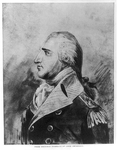Posted on July 14, 2008
Obama Fails Detest
Speech excuses America-haters
by
Daniel Clark
During a debate this past April, Sen. Barack Obama distanced himself from Weather Underground founder William Ayers by saying, "the notion that somehow as a consequence of me knowing somebody who engaged in detestable acts 40 years ago, when I was 8 years old, somehow reflects on me and my values, doesn't make much sense."
To detest something is to curse it, with God as your witness. That's no mild reproach. If he detests Ayers' acts -- which included the bombing of the Pentagon and the U.S. Capitol in the early 70s -- one would think he'd have a pretty harsh opinion of Ayers himself.

For the record, Obama was 35 years old when he visited Ayers' house for what news reports describe as a "meet and greet" to kick off his state senate campaign in 1995. It's unlikely that he voiced his detestation there. A look at the transcript of Obama's widely lauded "patriotism speech" might tell us why.
"In the early years of the civil rights movement and opposition to the Vietnam War, defenders of the status quo often accused anybody who questioned the wisdom of government policies of being unpatriotic," he said. "Meanwhile, some of those in the so-called counterculture of the 60s reacted not merely by criticizing particular government policies, but by attacking the symbols, and in extreme cases, the very idea of America itself -- by burning flags, by blaming America for all that was wrong with the world, and perhaps most tragically, by failing to honor those veterans coming home from Vietnam, something that remains a national shame to this day."
In that paragraph alone, he stitched together an entire fur coat's worth of weasel words, beginning with his identification of the "so-called" counterculture. Had Ayers and his mates set off "so-called" bombs? Less than three months earlier, Obama had cursed left-wing domestic terrorism, but now he talks as if it's a figment of a McCarthyite imagination.
He characterized anti-Americanism as a reaction to accusations of the same, but how natural a reaction is that? If you were falsely accused of being unpatriotic, burning an American flag is probably the last thing you'd think about doing. The leader of the "how dare you question our patriotism" party finds that scenario more plausible, however, than the actual existence of genuinely unpatriotic people. This theme recurred a paragraph later, when the senator criticized the slandering of General Petraeus by liberal war critics, but not until preemptively chiding that it was wrong of conservatives to doubt the patriotism of those same people.

Obama's use of the word "tragically" serves to relieve the America-haters of responsibility for their actions as well. By definition, a tragedy is something that cannot have been helped. Obviously, those who mistreated our returning Vietnam veterans had the option not to do so. Their behavior was an outrage, not a tragedy. Nor is it a "national shame," as he called it, appearing to suggest that we, as a nation, are collectively at fault.
In his March 18th speech on race, the senator made basically this same case, when he criticized the anti-American fulminations of his pastor, Jeremiah Wright, but attributed them to the American culture that had shaped Wright's views. What else is that explanation, if not a convoluted justification of what Wright had said?

During the Cold War, leftist intellectuals would identify themselves as anti-anti-Communists, to distinguish themselves from the Communists with whom they were coincidentally aligned. They did not profess support for Communism directly, but instead blamed American anti-Communists for driving the Reds to do what they did. Thus, they characterized every act of Soviet aggression as an irresistible reaction to American provocation.
Through his declaration of patriotism, Obama assured us that he's not anti-American, but then he constructed an argument that identifies him as an anti-anti-anti-American. The fact that this places him in the ideological company of anti-Americans is presented as purely accidental. He's not in favor of burning flags, spitting on veterans, or damning America from the pulpit, but neither does he scorn those who commit these acts, because he thinks the anti-anti-Americans drove them to it.
If Obama is correct in thinking that his tolerance for countercultural pond scum does not reflect on him, that's only because he's succeeded in rhetorically muddying the water. His conclusion -- that the enemies of America's enemies have made them commit detestable acts against America -- does not substantially differ much from saying, as Wright did more directly, that America's chickens are coming home to roost.
-- Daniel Clark is a Staff Writer for the New Media Alliance. The New Media Alliance is a non-profit (501c3) national coalition of writers, journalists and grass-roots media outlets.
The Shinbone: The Frontier of the Free Press
Mailbag . Issue Index . Politimals